Refine listing
Actions for selected content:
2251 results in Cambridge Elements
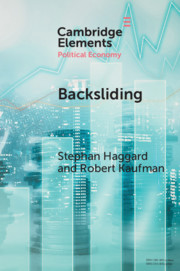
Backsliding
- Democratic Regress in the Contemporary World
-
- Published online:
- 19 January 2021
- Print publication:
- 11 February 2021
-
- Element
- Export citation
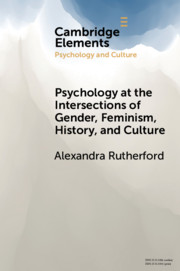
Psychology at the Intersections of Gender, Feminism, History, and Culture
-
- Published online:
- 18 January 2021
- Print publication:
- 11 February 2021
-
- Element
- Export citation
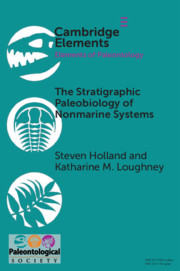
The Stratigraphic Paleobiology of Nonmarine Systems
-
- Published online:
- 18 January 2021
- Print publication:
- 04 February 2021
-
- Element
- Export citation

Unity of Science
-
- Published online:
- 18 January 2021
- Print publication:
- 11 February 2021
-
- Element
-
- You have access
- Open access
- HTML
- Export citation
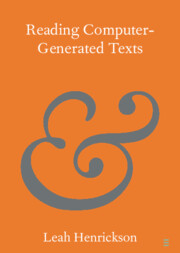
Reading Computer-Generated Texts
-
- Published online:
- 18 January 2021
- Print publication:
- 11 February 2021
-
- Element
- Export citation
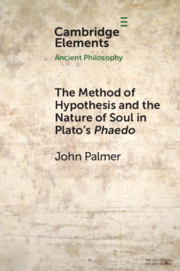
The Method of Hypothesis and the Nature of Soul in Plato's Phaedo
-
- Published online:
- 15 January 2021
- Print publication:
- 11 February 2021
-
- Element
- Export citation
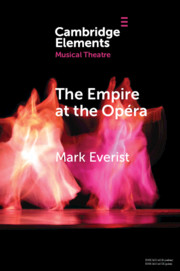
The Empire at the Opéra
- Theatre, Power and Music in Second Empire Paris
-
- Published online:
- 14 January 2021
- Print publication:
- 21 January 2021
-
- Element
- Export citation
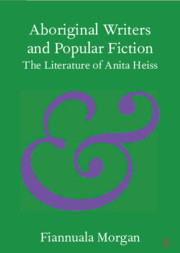
Aboriginal Writers and Popular Fiction
- The Literature of Anita Heiss
-
- Published online:
- 14 January 2021
- Print publication:
- 11 February 2021
-
- Element
- Export citation
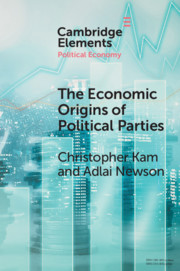
The Economic Origin of Political Parties
-
- Published online:
- 08 January 2021
- Print publication:
- 07 January 2021
-
- Element
- Export citation

Cerium Anomalies and Paleoredox
-
- Published online:
- 02 January 2021
- Print publication:
- 25 February 2021
-
- Element
- Export citation
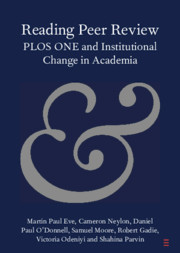
Reading Peer Review
- PLOS ONE and Institutional Change in Academia
-
- Published online:
- 01 January 2021
- Print publication:
- 04 February 2021
-
- Element
-
- You have access
- Open access
- HTML
- Export citation
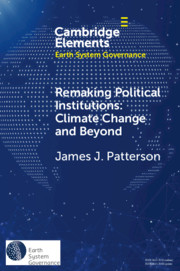
Remaking Political Institutions: Climate Change and Beyond
-
- Published online:
- 31 December 2020
- Print publication:
- 04 February 2021
-
- Element
-
- You have access
- Open access
- HTML
- Export citation

Corporate Governance
- A Survey
-
- Published online:
- 30 December 2020
- Print publication:
- 11 February 2021
-
- Element
- Export citation
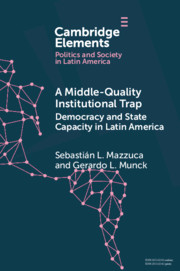
A Middle-Quality Institutional Trap: Democracy and State Capacity in Latin America
-
- Published online:
- 30 December 2020
- Print publication:
- 11 February 2021
-
- Element
- Export citation

Transforming the Sacred into Saintliness
- Reflecting on Violence and Religion with René Girard
-
- Published online:
- 30 December 2020
- Print publication:
- 04 February 2021
-
- Element
- Export citation
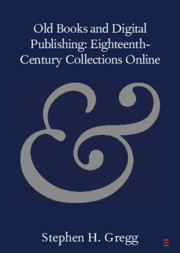
Old Books and Digital Publishing: Eighteenth-Century Collections Online
-
- Published online:
- 23 December 2020
- Print publication:
- 28 January 2021
-
- Element
-
- You have access
- Open access
- HTML
- Export citation
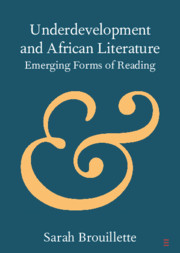
Underdevelopment and African Literature
- Emerging Forms of Reading
-
- Published online:
- 23 December 2020
- Print publication:
- 28 January 2021
-
- Element
- Export citation
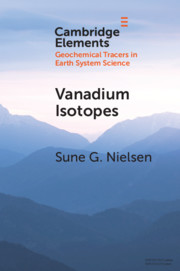
Vanadium Isotopes
- A Proxy for Ocean Oxygen Variations
-
- Published online:
- 23 December 2020
- Print publication:
- 28 January 2021
-
- Element
- Export citation

Pelagic Barite
- Tracer of Ocean Productivity and a Recorder of Isotopic Compositions of Seawater S, O, Sr, Ca and Ba
-
- Published online:
- 23 December 2020
- Print publication:
- 28 January 2021
-
- Element
- Export citation
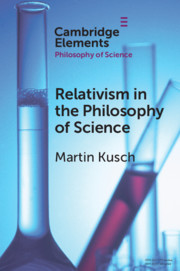
Relativism in the Philosophy of Science
-
- Published online:
- 19 December 2020
- Print publication:
- 28 January 2021
-
- Element
- Export citation
